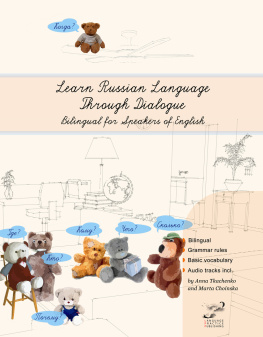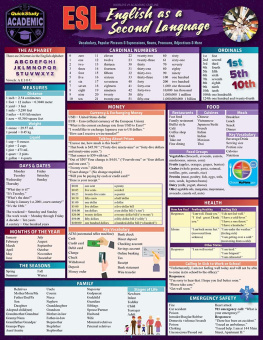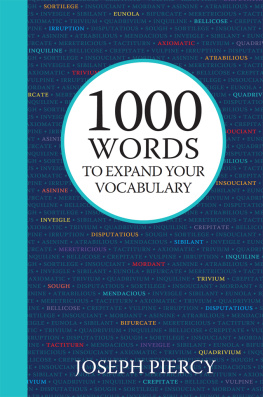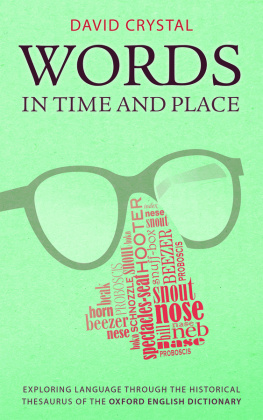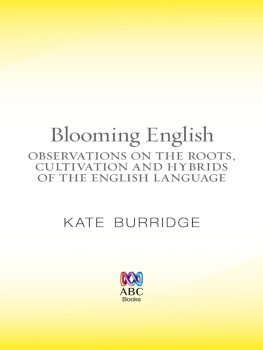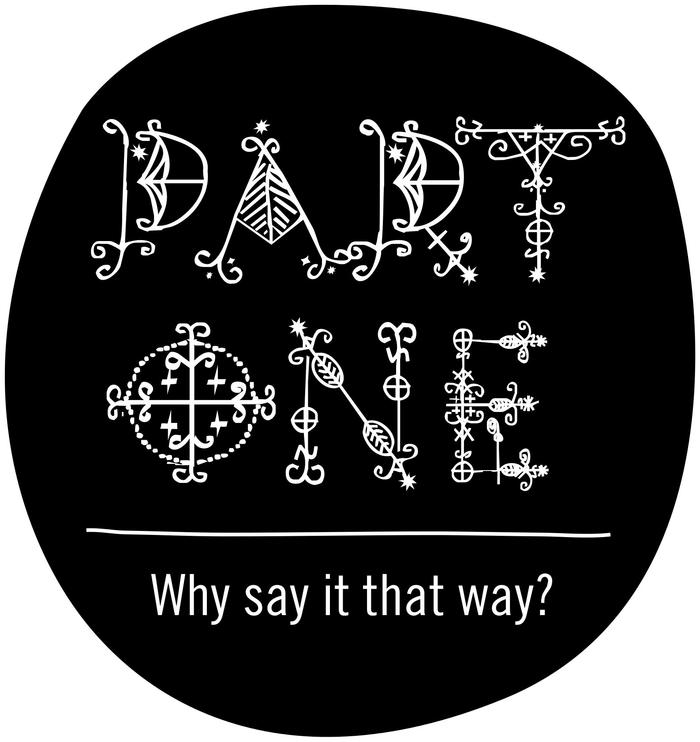Grateful acknowledgement is made to the following for images used in this book.
Grateful acknowledgement is also made to Harriet Allan and her team at Random House for all their help.
Language is endlessly fascinating. Most three-year-olds can use it without a great deal of effort, and once we have language we can use it to change the world: to manipulate people, to get our environment changed, to make progress in our societies. We use language to make friends, to declare war, to relate facts and to lie, and to tell stories.
For most of us, thought without language seems preposterous (although careful observation of a pre-lingual child or of a pet animal will readily suggest that they are able to draw logical conclusions even without language). If something goes wrong, and a person loses language, the tendency is to start treating them as though they are less than human. Language helps to make us human.
And yet it is remarkably difficult to define language. Not only is it difficult to provide a definition of language which will clearly distinguish between human language and animal communication systems, it is difficult to define a particular language like English or Mori. We might recognise it when we hear it (or we might think we will), but a definition escapes us.
Mostly, we are not good observers of language. We might think that someone sounds Irish, but we would have great difficulty in explaining precisely why, and how we knew they did not come from the west of Scotland. We might think that a particular word is new, and be surprised to discover that we have read it in the newspaper many times. Usually we are so involved in understanding what is being said to us that we pay little attention to the details of how it is being said.
Those details may nevertheless be very important to us. We can probably all hear the difference between I love it spoken sincerely and the same sentence spoken sarcastically, even if we cannot say with any accuracy just what the difference is (or, perhaps more important, which parts of the difference are essential to the two meanings, and which parts are incidental).
This book is about details. The details of the way we say words, the details of how we put sentences together, the details of the words we use in New Zealand, the details of the way we use words to enhance our interactions with others. It is written by people who have been trained to observe the details for people who have never needed to think about the details.
Consequently, it can be read thematically (in the way in which it is presented in the book), where all the material on New Zealandisms is put together, and all the bits on grammar are put together, or it can be dipped into (in the way in which some of the sections appeared in an earlier version, as a regular column in the Dominion Post newspaper), for a snippet of information of one kind and then a snippet of a completely different kind. Whichever way you choose to read this book, we hope you will find some fascinating pieces of trivia but also some ideas that will remain with you: some recurrent themes which are important.
One of the themes is that language changes. We cannot prevent it from changing any more than Canute could keep the tide from coming in. We may not be pleased when the tide overruns our chosen spot on the beach, but there is nothing we can do about it: we have to move on. Similarly, although there are some linguistic changes that we do not like, we cannot prevent the changes. Trying to dig ditches round our preferred ways of speaking will allow us to use up a lot of energy, but in the end, will not stop the tide of linguistic innovation. It is probably no consolation to be told that in 30 years or so, people will, almost certainly, not even know what we were trying to protect.
As language changes around us, we adapt and adopt new usages. Things we swore we would never say or do, we find ourselves saying. We become part of the force that causes the change. The authors of this book have found themselves saying things like I was like, Wow!, meaning that they said Wow!, even though the expression to be like did not exist with this meaning before they were married. From earlier generations we recall people worrying about on the weekend (it should be at, we were told), and aggravating being used to mean annoying (it should mean making worse, we were told). Earlier generations still may worry about split infinitives (to boldly go) or about pronouns after the verb to be (It is I or It is me).
In the long term, changes like these lead to a single language splitting into several new languages (as Latin split into French, Italian and Spanish, for instance). Some people think this has already happened to English. If it has not, it will.
As noted above, most of the material in this book has previously appeared in the Dominion Post. The organisation here is different; ephemeral references have been removed; more examples from around the country have been added; repetition has been edited out; and we have had a chance to review what we said. The result is a rather different perspective on what we have tried to communicate over a period of several years: different because the elements are all put together and because they are now linked thematically. We hope that our old readers will find new links, and that our new readers will find much to exercise their minds.
Laurie Bauer
Is there a correct way to say some words? It seems easy: cat is always pronounced one way, and dog is always pronounced a completely different way, and so all other words must also have their own pronunciation. Unfortunately, things are not that simple.
The problem is that any pronunciation has two sides to it. Consider the word either. Some people say it with the first syllable rhyming with see, others with the first syllable sounding like eye (and some people vary). You can find people all round the world pronouncing this word with these different vowel types: you can have the same vowel as in see, flea, key, receive, and so on, or you can have the same vowel as in eye, lie, flight, hi, and so on. This is the first side of pronunciation, which types you use.
The second is that, even if you choose to use the eye option, that particular vowel type, you will pronounce that vowel differently if you are a New Zealander from the way you will pronounce it if you come from Toronto, or Dover, or Leeds, or Atlanta. These different pronunciations may be only slightly different, or they may be radically different. In the extreme cases, a few New Zealanders saying this eye vowel sound may be interpreted by Londoners as though they are saying the vowel in

